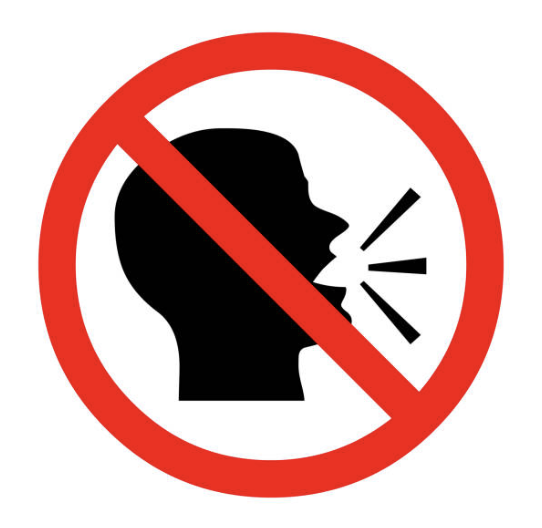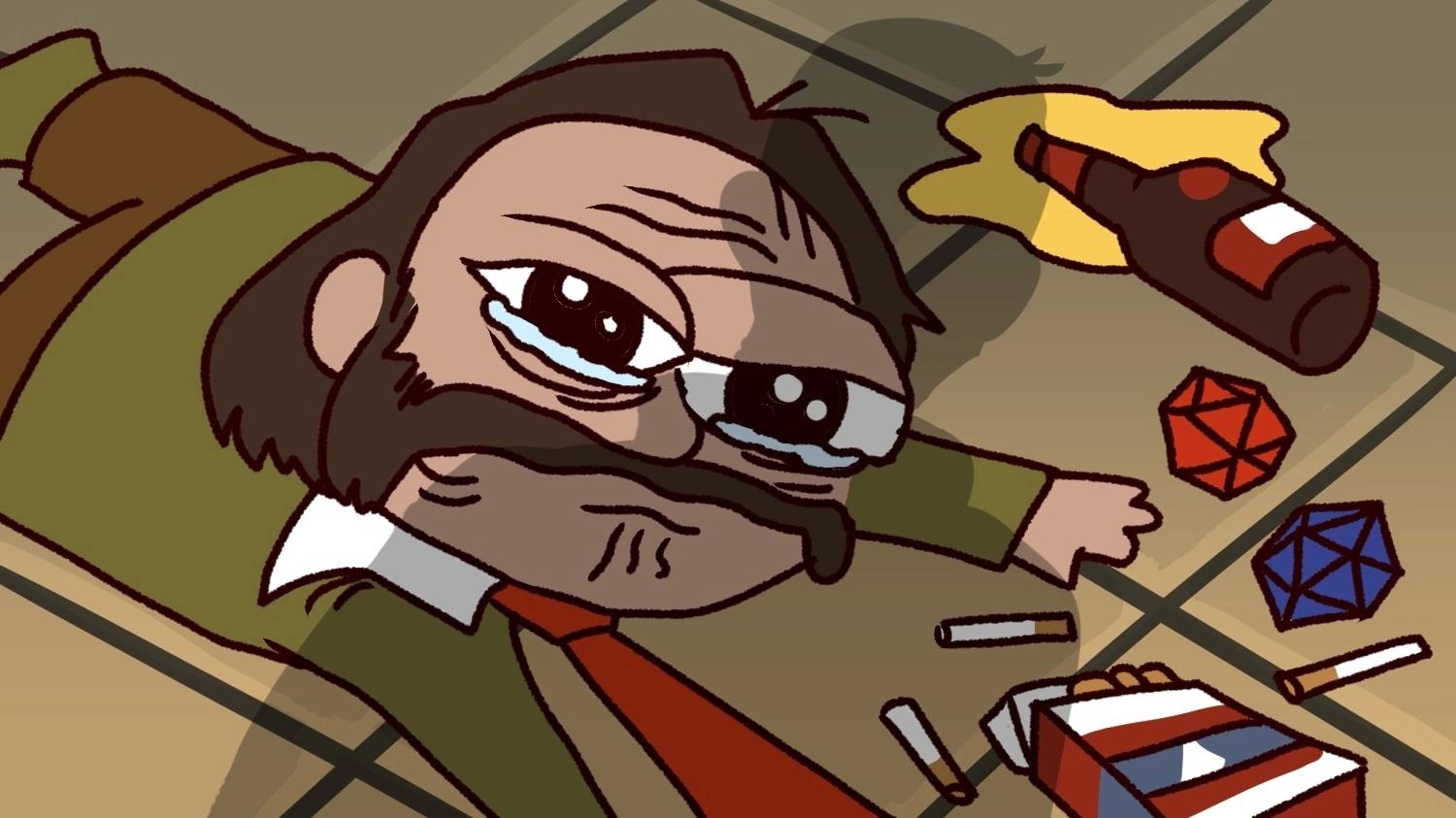Since this is Science Memes, I’m feeling emboldened to geek out a bit.
In my part of North America, there are a lot of pollinators besides bees “sexing up” the apple trees. I’m guessing it’s that way in many other parts of the world, too.
On the coolest days, you might not see any bees at all, but the flower flies (aka hover flies) will still go for it. On the warmest days, bees may even be in the minority of pollinators. I see all kinds of different fly species, a multitude of different wasps, many types of beetles, and sometimes even moths and butterflies – weather depending. Plus, even that time of year, there are often other bee species which are active besides just the invasive non-native honey bees.
I’m going to expand on the end bit: honey bees in the Americas are invasive European honey bees (meaning they aren’t invasive to Europe, or Africa and Asia either). There used to be honey bees in the Americas, but they’ve been extinct for an incredibly long time.
… Don’t we need more bees?
Some of us have allergies to specific pollinators. I can’t have some honey without a scratchy throat.
Love bees! Can’t have what they make :((
You might have a superpower.
A LOT of honey in grocery stores are actually syrup but due to capitalism, there really is no real way to tell for sure.
If you are allergic, but won’t die, from having honey, you might be able to make a guide for those of us that actually want real honey but have trouble trusting asshole companies.
I’m lazy. Pass.
Love the brevity.
I mean… capitalism is the source of many problems, but probably not why we can’t tell the difference between honey and counterfeit syrup sold as such
Chemistry is to blame here
The allergens in honey are from where the honey was made. If you haven’t already you might try locally sourced honey as it will have the allergens that are already in the air where you live.
I’m allergic to basically everything outside so I’m kinda boned.
We need more native pollinators, and honey bees are very good at outcompeting them once they’re introduced, threatening biodiversity and thus ecosystems.
Ah I’m in the UK where they are native pollinators
That doesn’t mean that introducing them in unnatural numbers isn’t harmful to biodiversity and other native pollinators
That’s not what we’re talking about though, we have a declining bee population problem that needs intervention to save
That was exactly what I was talking about. Honey bees are just one very specific type of bees, and they’re replacing the other ones.
Yes and no. Yes, they compete with the other ones and due to domestication have very high population, but also the same factors endangering honey bees (insecticides, monocultures) also endanger other bee species. So while “give the honey bees more sugar water so they survive” would be horrible foe ecological diversity, actually adressing the underlying factors would largely also benefit other species.
I wouldn’t even be surprised if to some degree that still applied to places where they’re invasive tbh
Yes. Every type of bee except honeybees is declining. In part because humans are constantly favouring honeybees.
still not healthy for them to be 85% of what’s pollinating crops, though
Prime wherever you are that’s not the UK defaultism to assume that honeybees are not native pollinators.
Breeding a native species in unnatural numbers is also a way of that species outcompeting other native species and harming biodiversity
You can narrow it down to just the Americas. The European honey bee (and subspecies) are native all across Europe, Asia, and Africa I believe.
Here in Europe, the European Honeybee is, not surprisingly, completely native.
That doesn’t mean that introducing them in unnaturally large numbers isn’t harmful to biodiversity
Oh yeah, them artificially displacing solitary bees is still bad
Agreed! But I don’t really get what point you were trying to make in the first comment then?
That the problem isn’t “native vs invasive”. It’s “biodiversity vs monoculture”.
Remember me to an label on a brick with milk “from certified farmers”. Before I thought it was from cows.
Bee exploitation free honey
Bee sexploitation free honey
Is it really honey if not made by bees?
Probably not, but we still call non-dairy substitutes “milk” other than some countries that regulate the label. Language tends to go by what it resembles rather than the process to generate it.
I did think of the milk example, but I’d argue that’s not quite an apt comparison as milk is sort of a generic term for similar things from different sources and often just any white liquid. If we had a different, special word for just cow’s milk for example, it’d be weird to call anything else by that name.
I’d argue the equivalent term to “milk” in this case would be syrup. There are many types of syrup, but we specifically use “honey” to mean “syrup made by bees”.
I don’t accept it.
So the fake sugar-water honey is trying to premiumize their shit product?
love how some people’s plan for surviving ecological collapse is just to craft products (that they assume are) without the endangered ecology. like, good job the assignment was to save the damn bees but yeah I’m sure all the plants will be able to survive if we smear them with synthetic honey.
I assume this “bee-free honey” is more about veganism than about ecology.
This one?

that would make sense. I’m unsure of whether it’s helpful, but I forgot that goal of veganism could extend to domestic bees as well. are there any vegans who can clue me in on the thought process regarding bees?
Honey production is not exactly exploitation free. For instance, queen bees often have their wings clipped or are intentionally killed to be replaced by another
Moreover, honey production also out competes native/wild bee populations which hurts them. Especially since honeybees are heavily used well outside their native ranges
We found compelling evidence that honey bee introductions indirectly decrease pollination by reducing nectar and pollen availability and competitively excluding visits from more effective native bees. In contrast, the direct impact of honey bee visits on pollination was negligible, and, if anything, negative. Honey bees were ineffective pollinators, and increasing visit quantity could not compensate for inferior visit quality
https://esajournals.onlinelibrary.wiley.com/doi/full/10.1002/ecy.3939
oh daaammn. okay that’s what I was curious about. seems like every agriculture trade gets taken to fucked up places in order to meet the demands of industry. thanks for providing the link.
The way I had it described to me was that veganism is against the exploitation of all animals, including “stealing” honey from a hive.
But, “vegan” is a label at least as malleable as “Christian”.
To some people, this Foie Gras might be vegan, if they can’t find the exploitation. To others, large-scale U.S. produce might be non-vegan since it depends on exploitative labor (humans are animals) practices. To a few, mussels are vegan because there’s no mind to suffer or be exploited. To a very few, plants that show a “pain” response are non-vegan, even if that response happens over time, as long as it has a clear trigger in human interference (which is expliotation due to the “pain”), despite the complete lack of a nervous system, which humans (and other animals) use to feel pain.
Anyway, I’m NOT a vegan, but I do try to limit my meat consumption. It just feels like the amount I used to eat isn’t really globally sustainable, and I take up too many resources in to many other ways, too.
ooh yeah that does sound like dumb fake concern. the relationship we have with bees is ideally pretty mutually beneficial and outside of the framework of an idea like theft. Christianity does seem like a good analoge for it. like there’s people who obviously don’t get the ethics of it beyond a aesthetic performance.
somebody else in the comments just told me that in industrial honey farms will do things like clip the wings of queens to prevent them from moving colonies away so I can understand the concern there though. or that domestic bee colonies disrupt local wild ones which is also valid.
I’m of the same mindset as you then. something I realized a while back is there are humane ways of doing agriculture but the demands of capitalism have forced us to take the exploitation of animals and workers to insane body horror places. I don’t think I can live animal product free but I absolutely respect people who do and I’m definitely invested in changing our economy into one that doesn’t require infinite growth at the cost of all this suffering.
Saving “the bees” is easy, since bees in general are doing fine.
Saving solitary wild bees the real task, and that’s much harder.
I don’t think they are. I could have swore that the looming death of most pollinators was on the horizon.
Scientists: “We made man-made honey that is virtually identical to real honey in every way!”
Also scientists after giving bees the synthetic honey after taking the real bee honey: “Why don’t the bees like our man-made honey?”










